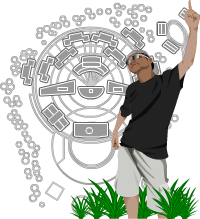AIMST’s Medicine Man
The University produces competent, confident, and locally relevant medical graduates.

Sethuraman who, along with his team of seasoned teachers, set the high standards at the university’s Faculty of Medicine.
AMONG the leading universities in the country in the output of home grown medical talent, AIMST University constantly tries to better its own track record. And if there is one key person responsible for advancing the university’s goals (the university aims to be the number one private medical school in the country), it must be Prof Dr K.R. Sethuraman, who is deputy vice chancellor (Academic & International Affairs), and dean and senior professor of medicine at the university’s Faculty of Medicine.
With his team of seasoned teachers, Sethuraman has been ensuring academic excellence in the faculty. There is, for instance, a lecturer-student ratio of 1:6, and still the number of staff intake is on the increase. The current staff strength is 90 full-time staff and over 140 part-time workers.
Under Sethuraman, the university has yield good results in terms of producing competent, confident, and locally relevant medical graduates. The university collaborates with affiliated public hospitals towards this end.
A thorough grounding in basic sciences, clinical skills training, and a curriculum based on “Tomorrow’s Doctors”, a landmark British document, has been responsible for getting the MBBS programme fully accreditated in 2007. It was also how it earned its entry into the AVICENNA directory of world medical schools, as well as the list of approved medical programmes for medical licensing exam of the US.
AIMST is the only private university in Malaysia with a home grown museum on anatomy, exhibiting real dissected samples. Scary as this museum may appear to a lay person, it is an eye opener for young minds keen to study the human body in-depth. Apart from MBBS, the Faculty of Medicine at AIMST offers four postgraduate courses in basic medical sciences: MSc in Human Anatomy. Medical Physiology, Medical Biochemistry, and Medical Microbiology.
Sethuraman brought with him vast experience that spanned 33 years, having been, among others, professor of internal medicine, and before that, asst proffessor in Faculty of Medicine at JIPMER, Puducherry, India. Prior to that, he was a lecturer in cardiology at Sree Chitra Tirunal Institute for Medical Sciences and Technology in Trivandrum, India for three years.
Sethuraman’s experience in consultancy included being training consultant for Training of Trainers of various World Bank aided Health System Projects; taskforce member for JPT, Malaysia on Medical Education (2007); expert group member of Health Action International (HAI) in Europe (contributing to their proposed “World Medicines Fact Book”); and being on the international advisory board for the “Davidson’s Textbook of Medicine” (one of two advisors from Malaysia).
Sethuraman has authored five books, while editing and co-authoring four more on a wide array of topics, To his credit also were 35 publications, the letest being in 2011, Now 62, he has been contemplating returning home to Puducherry but has been persuaded to stay on by the university. It seems he is yet to close this chapter of his life. Being a “medicine man” seems to be his destiny.

